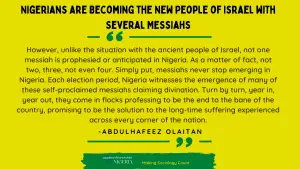I had to deal with the question: ‘What do you think about it?’ every minute after my friend shared a Spotify playlist she had compiled. It took me 2 hours of the night to finish listening, and discovering different interesting songs made me wonder how far we have come as music consumers in Nigeria.
Previously, not a lot of people were able to compile playlists in one place. Though the media-curated playlists helped liven our music experience, it was hard to please everyone. With streaming apps, the music experience is changing, and this article looks at those changes. Without wasting time, let’s hit the ground running on music consumption in Nigeria.

Down the Memory Lane on Music Consumption
There was a time when owning a radio deck was the deal. Weekends felt like a carnival on the streets, with different speakers blaring the music of Fela, African China, The Remedies, Awilo, 50 Cent, R Kelly, etc.
There also came the CDs, with devices like Discman giving a personal listening experience. Music became mobile and you could take your CD player anywhere. Amidst these past experiences, some things were constant and can be summarized in the following ways:
● Shared Music Taste
Environment played a major role in your music interest. As a young boy who grew up listening to Fuji and Afrobeat(s), I couldn’t relate to some of the foreign songs my school friends hyped. The only artist we agreed on was Michael Jackson who had global appeal for his break dances.
If you had no cable tv, you couldn’t enjoy the best foreign songs on a channel like MTV Base. In those days, local music was for the trenches, and love for the so-called elite music was a big flex.
● Days of the Evergreens
No cap, but Yahooze will still make people lose ‘home training’ when it’s played. Songs like it are defining in a generation’s music journey and remain etched in their minds. Barbershops and CD vendors also deserve credit for keeping the streets buzzing with songs that became memory verses.
I mean those were the times when people wore their ‘stanship’ everywhere, with stickers, wallpapers, and the dress style of their favorite artists.
● When Gatekeepers had Gates to Keep
The term ‘gatekeeper’ had prominence during these eras. This term refers to media platforms and personalities, DJs, and critics who were the dispatch companies of music content.
You had no visibility as a musician if the popular OAPs and TV stations weren’t playing your songs. Those media platforms had the power to influence music culture and censorship had more effect.
How the New Skool helped Music Consumption in Nigeria
The New Skool
Technology birthed the proliferation of streaming platforms like Apple Music, Spotify, Boomplay, etc. These platforms eased our stress with their user-friendly interface, AI-powered playlists and brought a shift in Nigerians’ reception of music content. How? Let’s see:
● More music (not the Website)
Every day is a Friday now for artists as releasing a new song is just a click away on streaming apps. I wonder how Seyi Vibez would have survived the days of selling discs in Lagos traffic or competing with Alaba vendors.
More uploads mean more music for listeners. Like Davido’s sexcapades, you can listen to 10 new songs a day, and in between, the buzz around Wizkid’s new song is left to the FCs. Thanks to Digital Service Providers, you can even discover songs from the U.F.Os.
● Covid-19
The pandemic changed Nigerians’ attitudes towards music. Everyone stayed indoors, and there was a need for content to keep us entertained as we relied on our mobile devices. Even artists could not go on tours and had to rely on singles to make money (Wetin Dejare for chop if Tio Tequila no record?)
This reality gave rise to the discovery of new music genres to satisfy people’s hunger for content. Also, the interaction between artists and fans on Instagram Lives, Twitter, and TikTok created an inclusive environment as artists could understand consumers’ behavior better.
● Indomie Generation
The world today is fast-paced and there’s a need for daily supply of content. While this helps artists to be more expressive, the evergreen nature of music has dwindled. Who remembers the hits of 2022 when 2023 has given us more hits?
It’s not out of place then that there’s a reduction in song playtime to keep up with people’s elusive attention and get more streams. Albums are competing with instant noodles these days and their playtime makes them forgettable to listeners.
● Getting Music the right way
The streaming platforms won’t let the poor breathe with their subscription-based model. Though this model helps artists in revenue generation, it meant the end of free music sites.
You either pay now or listen to the advert for toothpaste while enjoying Asake’s Work of Art. That can be annoying but, ‘Ololade’ has to fund his ‘omo ope’ lifestyle too. As a listener, the subscription model limits the number of songs you can listen to using free services.
Conclusion
Music consumption in Nigeria has witnessed a remarkable journey, from days you couldn’t keep your music private to now that you can enjoy music alone. Not only can you listen alone, but you can also stay up-to-date with music everywhere you go.
By embracing technology, Nigerian music has become a force to reckon with in the international scene, especially our Afrobeats. However, the streaming era also poses a challenge for upcoming artists’ breakthroughs as more songs get uploaded every day and stream farms are never out of ‘fertilizers’. This limits listeners’ choices to songs that appear constantly on their radar. I only hope streaming platforms have ways to tackle the problem of fake streams to reward organic growth.






